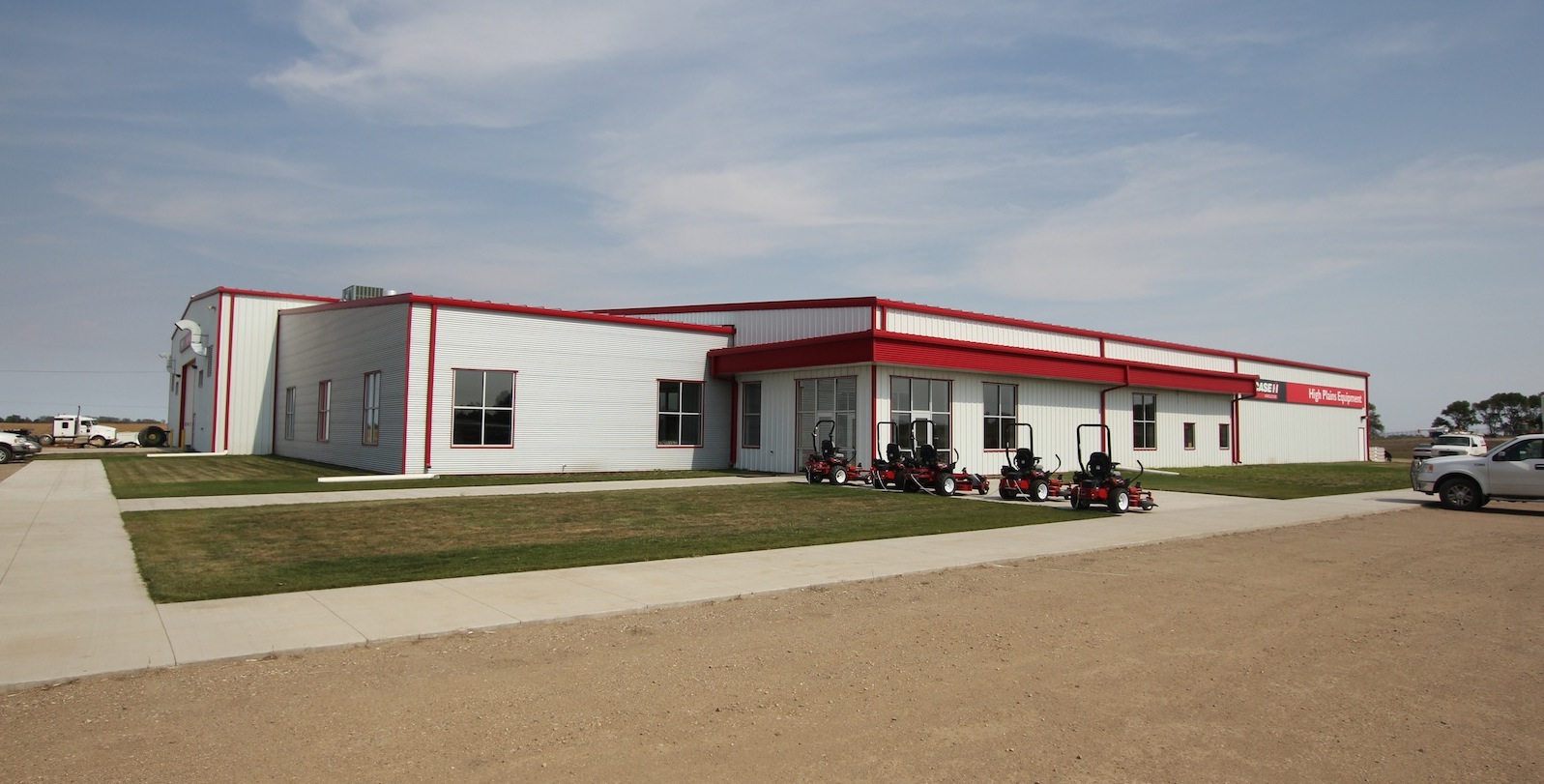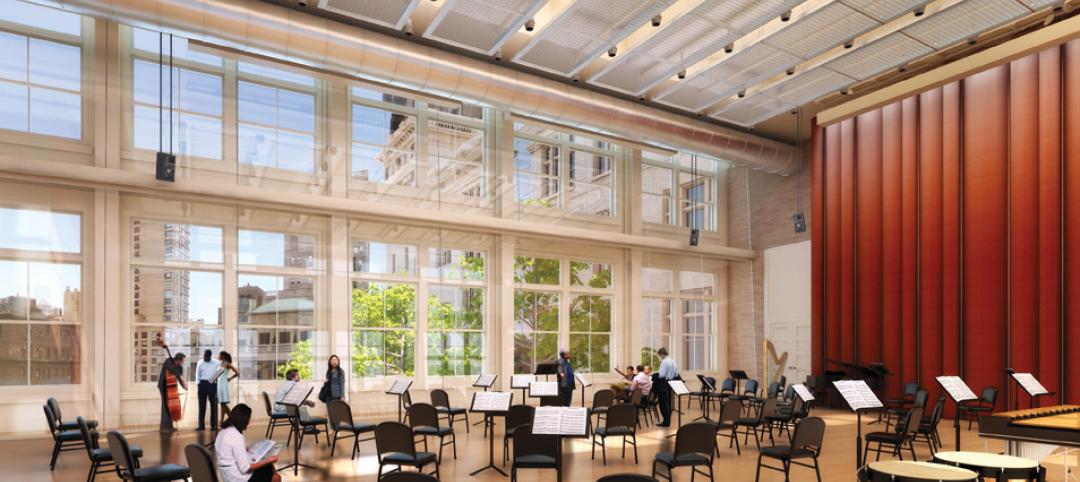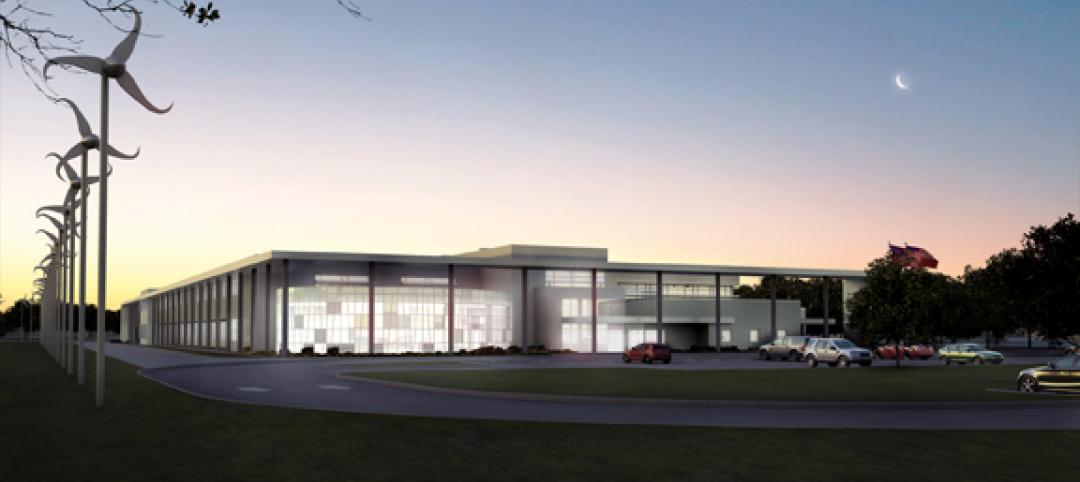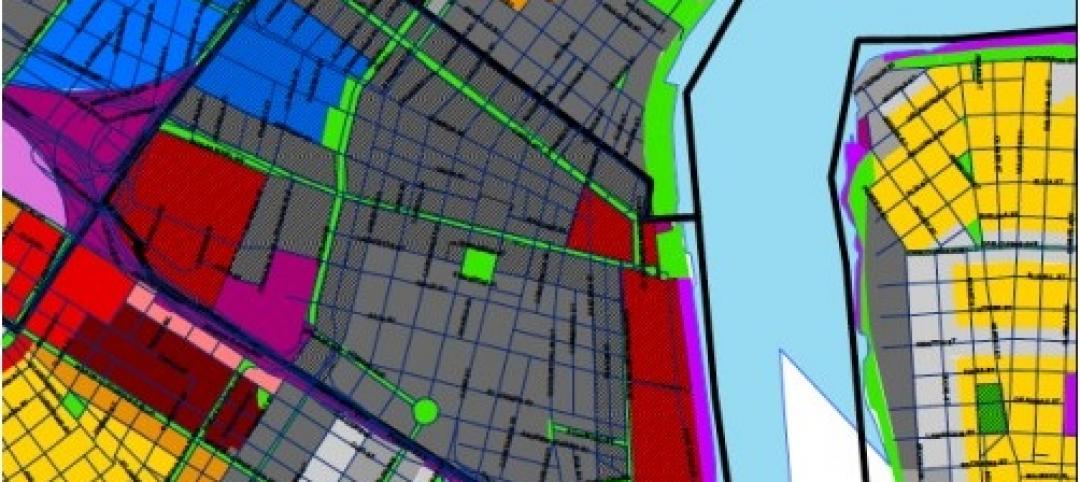As modern agricultural equipment continues to get larger and more sophisticated, the buildings that sell and service those massive earthmovers must do the same.
That’s why High Plains Equipment, an independent Case IH dealership in Devils Lake, N.D., decided to replace its existing cramped quarters with a spacious, state-of-the-art metal building.
“We needed to do this for our customers. It’s as simple as that,” says John Swenseth, the company’s owner/operator.
The new space—a 38,117-sf facility with a 7,950-sf second-level mezzanine—is three times the size of the former building, improving the dealership’s ability to serve its growing customer base.
Situated on a 22-acre site along U.S. Highway 2, the new building replaces the dealership’s existing 12,000-sf building located on a much less visible site.
“Now we get people stopping in here who didn’t even realize there was a Case IH dealer in town,” Swenseth says.
The project’s three buildings include a symmetrically gabled structure and two lean-to buildings, each braced by the gabled structure.
The facility’s large clear span enabled the installation of a dozen 25-foot service bays, twice as many and twice as large as in the previous facility.
The main structure also houses two 5-ton bridge cranes, each extending 175 feet and spanning 35 feet.
“The overhead cranes are making life easier and less strenuous for our technicians,” Swenseth says. “With more shop space, we’re able to hire more technicians and they can work inside instead of outside in the mud.”
Because technicians now have the space to work on more than one job at a time, productivity has been boosted. And the facility’s three overhead doors and dedicated wash bay contribute to improved operational efficiency.
“This is a very nice technical shop,” says Mike Dunn, business development manager of Construction Engineers Ltd., the Star builder in Grand Fork, N.D. “It includes floor heat and an air-conditioning system to keep the technicians comfortable year-round.”
The new facility also includes an expanded merchandise and display area as well as an indoor expo room and kitchen for hosting customer training clinics and community events.
“It’s a good experience for customers when they come in,” Swenseth says. “It’s big and open and clean and modern. They appreciate that.”
A fast-track, design-build construction schedule enabled the building team to complete the project in about eight months.
“We assembled a lot of the frames and the roof structure on the ground, and brought a crane onsite to lift larger portions of it into place to save time and increase safety on the project,” Dunn says. “We were able to take advantage of the short building season and meet the owner’s timeline to complete the building in time for the spring selling and service season.”
Related Stories
| May 18, 2011
Carnegie Hall vaults into the 21st century with a $200 million renovation
Historic Carnegie Hall in New York City is in the midst of a major $200 million renovation that will bring the building up to contemporary standards, increase educational and backstage space, and target LEED Silver.
| May 17, 2011
Redesigning, redefining the grocery shopping experience
The traditional 40,000- to 60,000-sf grocery store is disappearing and much of the change is happening in the city. Urban infill sites and mixed-use projects offer grocers a rare opportunity to repackage themselves into smaller, more efficient, and more convenient retail outlets. And the AEC community will have a hand in developing how these facilities will look and operate.
| May 17, 2011
Architecture billings index fell in April, hurt by tight financing for projects
The architecture billings index, a leading indicator of U.S. construction activity, fell in April, hurt by tight financing for projects. The architecture billings index fell 2.9 points last month to 47.6, a level that indicates declining demand for architecture services, according to the American Institute of Architects.
| May 17, 2011
Sustainability tops the syllabus at net-zero energy school in Texas
Texas-based firm Corgan designed the 152,200-sf Lady Bird Johnson Middle School in Irving, Texas, with the goal of creating the largest net-zero educational facility in the nation, and the first in the state. The facility is expected to use 50% less energy than a standard school.
| May 17, 2011
Gilbane partners with Steel Orca on ultra-green data center
Gilbane, along with Crabtree, Rohrbaugh & Associates, has been selected to partner with Steel Orca to design and build a 300,000-sf data center in Bucks County, Pa., that will be powered entirely through renewable energy sources--gas, solar, fuel cells, wind and geo-thermal. Completion is scheduled for 2013.
| May 17, 2011
Should Washington, D.C., allow taller buildings?
Suggestions are being made that Washington revise its restrictions on building heights. Architect Roger Lewis, who raised the topic in the Washington Post a few weeks ago, argues for a modest relaxation of the height limits, and thinks that concerns about ruining the city’s aesthetics are unfounded.
| May 17, 2011
The New Orleans master plan
At an afternoon panel during last week's AIA National Conference in New Orleans, Goody Clancy Principal David Dixon and Manning Principal W. Raymond Manning shared their experiences creating the New Orleans Master Plan, a document that sets a new course for the city, from land use and transportation planning to environmental protection.
| May 17, 2011
Do these buildings look like buffalo to you?
It’s hard to contemplate winter now that we’re mid-spring, but when the seasons change, ice skaters in Winnipeg will be able to keep warm in plywood shelters designed by Patkau Architects. The designers created temporary shelters inspired by animal behavior—specifically, buffalo bracing against the wind. Check them out.
| May 16, 2011
USGBC and AIA unveil report for greening K-12 schools
The U.S. Green Building Council and the American Institute of Architects unveiled "Local Leaders in Sustainability: A Special Report from Sundance," which outlines a five-point national action plan that mayors and local leaders can use as a framework to develop and implement green schools initiatives.












